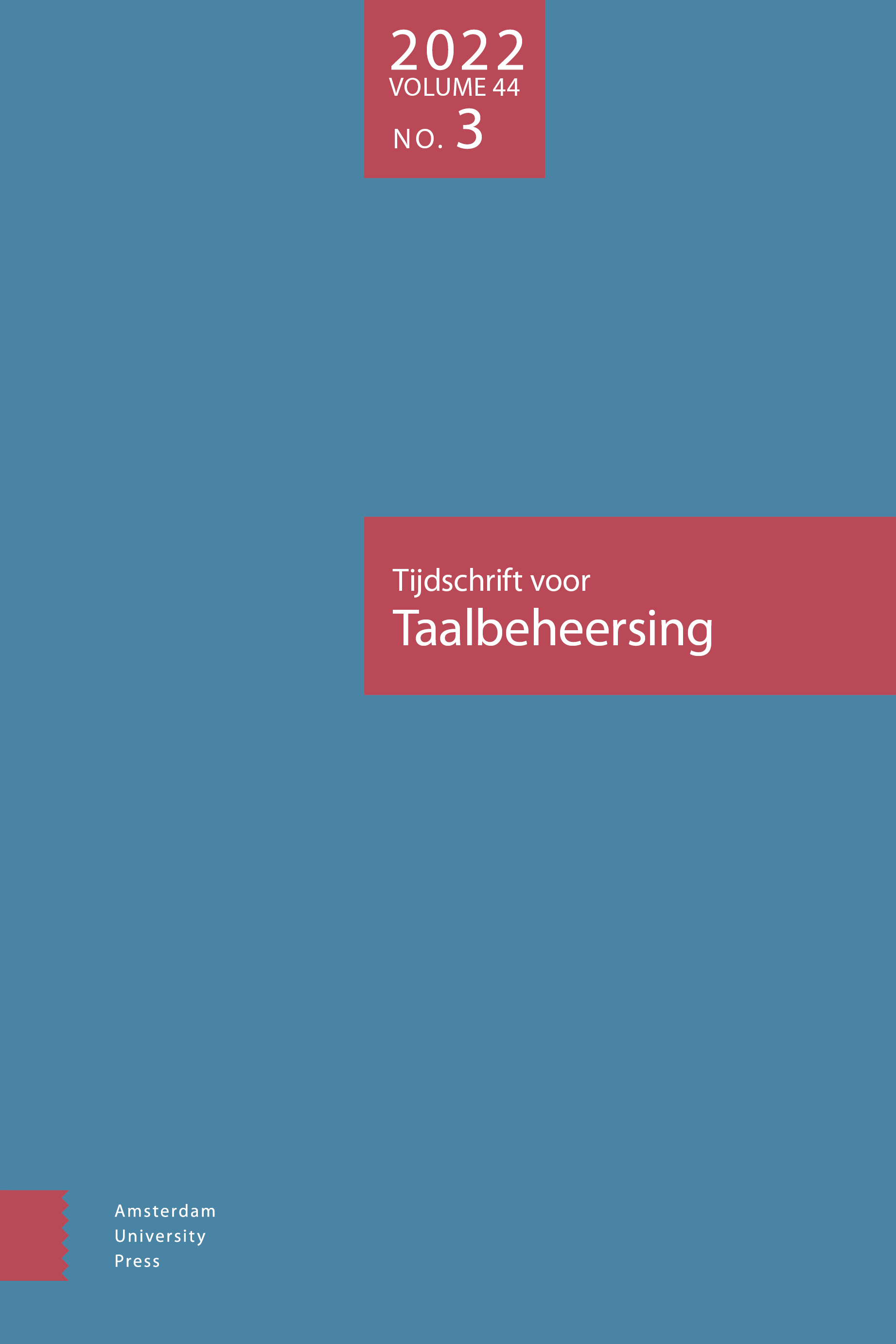-
oa Argumentatie, zelfpromotie of beide? Een analyse van de tweets van Nederlandstalige politici en experten over de covid-19-pandemie1
- Amsterdam University Press
- Source: Tijdschrift voor Taalbeheersing, Volume 44, Issue 3, dec. 2022, p. 176 - 196
-
- 01 dec. 2022
- Vorig Artikel
- Inhoudsopgave
- Volgend Artikel
Samenvatting
In dit onderzoek laten we de argumentatieve functies zien van zelfverwijzing en zelfpromotie in de tweets van Nederlandstalige politici en experten in de beginfase van de covid-19-pandemie. Daartoe combineren we pragmatischdiscursieve analyse en inzichten uit argumentatietheorie. In de eerste plaats bespreken we verschillende manieren waarop sprekers hun ethos, dat wil zeggen hun geloofwaardigheid voor zover dat blijkt uit taalgebruik, op kunnen bouwen en argumentatief kunnen benutten. In de tweede plaats bekijken we hoe strategieën van zelfverwijzing en zelfpromotie kunnen bijdragen aan ethosopbouw en ethosgebruik. Ten slotte bekijken we hoe deze fenomenen interageren in tweets gepubliceerd door Nederlandstalige politici en experten in de eerste maanden van de pandemie. We laten zien dat de politici meer aan ethosopbouw doen dan de experten en meer collectieve zelfverwijzing gebruiken, vaak naar de regering of soms ook naar de volledige bevolking. De experten ondersteunen in hun tweets meer het ethos van anderen en gaan pas over tot ethosopbouw via verschillende zelfpromotiestrategieën wanneer hun ethos wordt aangevallen.


